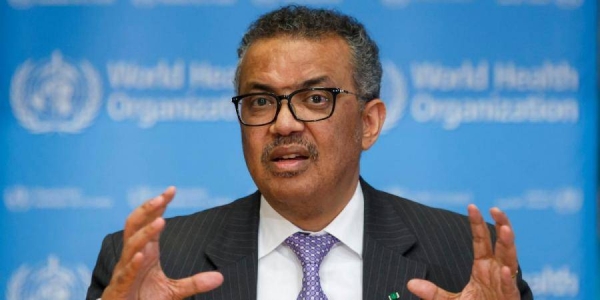By Asmau Ahmad
The World Health Organization (WHO) have said that breastfeeding was more critical than ever in the lives of babies and children in crisis situations.
WHO’s Director-General Dr Tedros Adhanom Ghebreyesus, made this known in a joint statement on Monday in commemoration of the World Breastfeeding Week marked annually between Aug. 1 and 7.
The theme for the 2022 World Breastfeeding Week (WBW) is, “Step up for breastfeeding: Educate and Support”.
The UN health agency, therefore, called on governments to allocate increased resources to protect, promote, and support breastfeeding policies and programmes, especially for the most vulnerable families living in emergency settings.
“During emergencies, including those in Afghanistan, Yemen, Ukraine, the Horn of Africa, and the Sahel, breastfeeding guarantees a safe, nutritious and accessible food source for babies and young children.
“It offers a powerful line of defence against disease and all forms of child malnutrition, including wasting.
“Breastfeeding also acts as a baby’s first vaccine, protecting them from common childhood illnesses.
“Yet, the emotional distress, physical exhaustion, lack of space and privacy, and poor sanitation experienced by mothers in emergency settings mean that many babies are missing out on the benefits of breastfeeding to help them survive,” they noted.
The organisation said the exclusive breastfeeding rate in Nigeria was 29 per cent, meaning that over 70 per cent of infants were denied the aforementioned benefits of breast milk in their formative years.
According to WHO, only nine per cent of organisations have a workplace breastfeeding policy, indicating that mothers lack the enabling environment to optimally breastfeed their babies.
“The results are high stunting rates of 37 per cent of children under-5, of which 21 per cent are severe, and wasting among children under 5 years of age (7 per cent).
“Protecting, promoting, and supporting breastfeeding is more important than ever, not just for protecting our planet as the ultimate natural, sustainable, first food system, but also for the survival, growth, and development of millions of infants,” WHO said.
WHO urged governments, donors, civil society, and the private sector to step up efforts to prioritise investing in breastfeeding.
The organisation also called for the support of policies and programmes, especially in fragile and food insecure contexts.
“The government should equip health and nutrition workers in facilities and communities with the skills they need to provide quality counselling and practical support to mothers to successfully breastfeed.
“It should also implement family-friendly policies that provide mothers with the time, space, and support they need to breastfeed,” WHO said.


